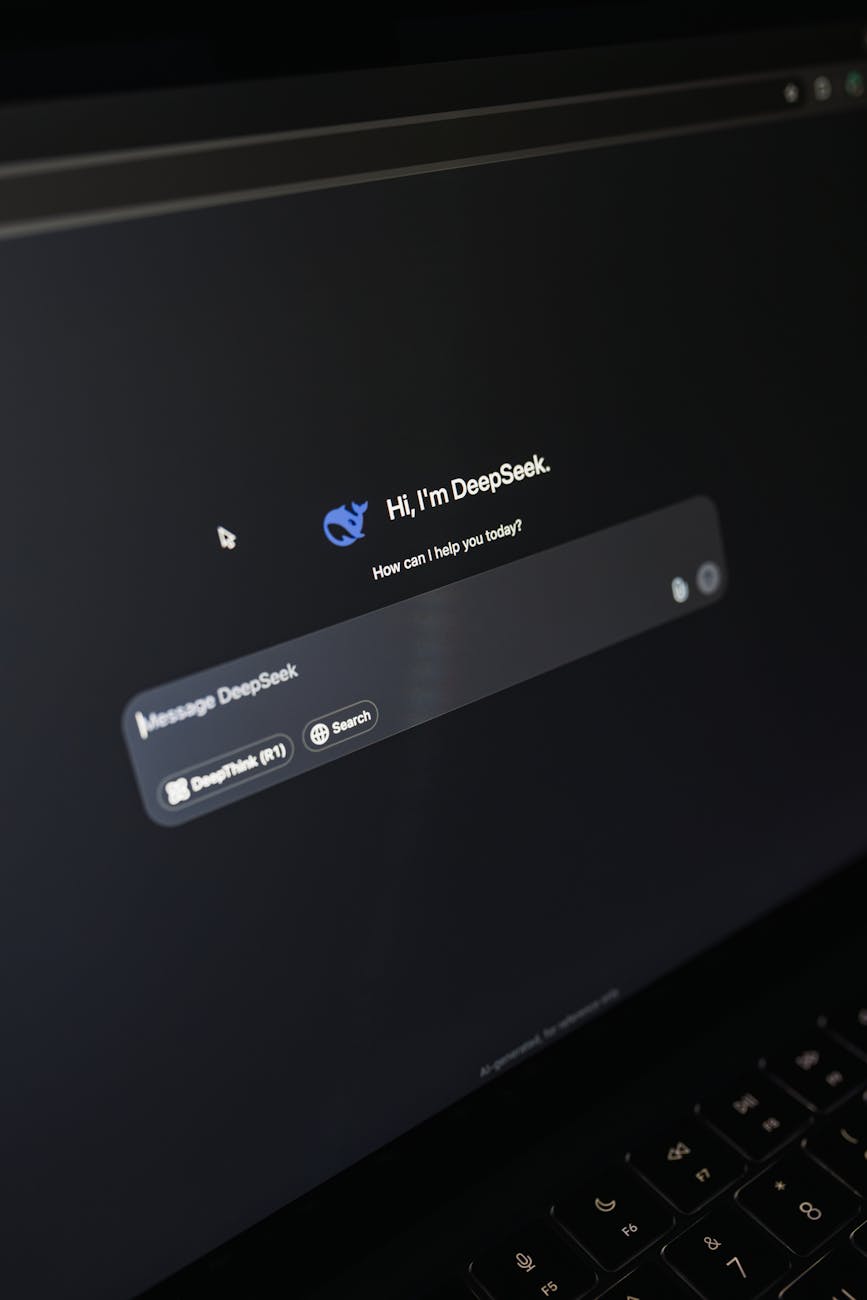DeepSeek and the Open Source AI Revolution: What It Means for SEO Content Creation

1. Introduction
Imagine a small business owner, struggling to compete with larger companies that have dedicated marketing teams and expensive SEO tools. They need to create engaging content to attract customers, but lack the resources.

Now, imagine that same business owner leveraging a powerful AI tool, previously out of reach, to generate blog posts, optimize product descriptions, and boost their online visibility – all without breaking the bank. This is the promise of open-source AI, and models like DeepSeek are leading the charge in democratizing SEO content creation.
The open-source AI community has experienced explosive growth in recent years, with contributions surging by a staggering 400% in the past five years. This remarkable expansion signals a major shift in the technological landscape. Leading this revolution is DeepSeek, an open-source AI model with the potential to redefine how we approach SEO content creation.
For years, access to powerful AI tools has been largely restricted by high costs and complex proprietary systems. But DeepSeek, and models like it, are changing the game. This article explores how DeepSeek and similar open-source AI models are revolutionizing SEO content creation by making powerful AI tools accessible to a wider range of content creators.
2. The Rise of Open-Source AI
Open-source AI refers to artificial intelligence models and frameworks with publicly available source code. This means anyone can access, use, modify, and distribute the software. Key characteristics include:
- Transparency: Allowing for scrutiny and understanding of the AI's inner workings.
- Collaboration: Enabling developers worldwide to contribute to the project, leading to faster innovation.
- Customization: Allowing users to tailor the AI to their specific needs and datasets.
As developers, researchers, and curious newcomers explore how these systems work and adapt them for real-world applications, a vibrant collaborative environment emerges.
The implications of open-source AI for content creation are profound. Proprietary AI tools often come with significant subscription fees, making them inaccessible to small businesses and individual creators. Open-source alternatives like DeepSeek offer a cost-effective solution. With open-source AI, you're not locked into a vendor's ecosystem. You have the freedom to modify the model, integrate it with your existing tools, and control your data. The open-source community is a hub of innovation, with developers constantly contributing new features, improvements, and use cases, pushing the boundaries of what's possible.

3. DeepSeek: A Game Changer for SEO Content
DeepSeek is a powerful open-source AI model with a range of capabilities that are particularly relevant to SEO content creation. It can generate high-quality articles, blog posts, product descriptions, and other types of content. It can also condense lengthy articles into concise summaries, saving time and effort. Furthermore, DeepSeek can translate content into multiple languages, expanding your reach to a global audience. While not a dedicated keyword research tool, DeepSeek can analyze text and suggest relevant keywords for optimization.
Compared to other AI models, DeepSeek often demonstrates competitive performance, particularly in tasks requiring nuanced understanding and creative text generation. While proprietary models may offer more polished interfaces and dedicated support, DeepSeek provides a powerful and customizable alternative.

DeepSeek empowers content creators in several key ways:
- Overcoming Writer's Block and Scaling Content Creation: Generate drafts, outlines, and even complete articles in a fraction of the time it would take a human writer.
- Improving SEO Performance: Analyze your content and suggest improvements for SEO, such as incorporating relevant keywords, optimizing meta descriptions, and improving readability.
- Personalizing Content: By training DeepSeek on your audience data, you can create content that is tailored to their specific interests and needs.
Let's look at a concrete example of how DeepSeek can improve SEO. Imagine you've written a blog post about "best hiking boots." You can feed this post into DeepSeek and ask it to "analyze this text and suggest relevant keywords for SEO optimization." DeepSeek will then scan the text, identify the core themes, and provide a list of related keywords, such as "waterproof hiking boots," "lightweight hiking boots for women," or "best hiking boots for backpacking." It might even suggest long-tail keywords like "comfortable hiking boots for plantar fasciitis." You can then strategically incorporate these keywords into your content, meta descriptions, and image alt text to improve your search engine ranking.
4. Democratizing Access to AI
Proprietary AI tools for SEO often suffer from high costs and limited accessibility, with subscription fees that can be prohibitive for small businesses and individual creators. Furthermore, they can lead to vendor lock-in and a lack of control, making you dependent on the vendor for updates, support, and access to your data.
DeepSeek offers a compelling alternative by making AI tools available to small businesses and individual creators. The open-source nature of DeepSeek eliminates the financial barrier to entry, allowing anyone to leverage the power of AI for SEO. By fostering a community of developers and users, DeepSeek encourages innovation and drives competition, ultimately benefiting everyone. Moreover, DeepSeek is said to work as well as OpenAI’s o1 while costing 95% less.
While specific case studies are still emerging, early adopters of DeepSeek have reported significant improvements in content creation efficiency and SEO performance. For example, one small business used DeepSeek to generate product descriptions for their e-commerce store, resulting in a 30% increase in organic traffic. Another individual creator used DeepSeek to translate their blog posts into multiple languages, expanding their audience and reach.
5. Challenges and Considerations
While DeepSeek is a powerful tool, it's crucial to remember that it's not a replacement for human creativity and judgment. AI models are trained on data, and if that data contains biases, the AI will likely perpetuate them. Human oversight is essential to identify and correct these biases. AI-generated content can sometimes sound generic or robotic, so human editors are needed to inject personality and ensure the content aligns with the brand's voice and style.
For example, if DeepSeek is trained on a dataset that predominantly features male authors or perspectives, it might inadvertently generate content that is biased towards a male point of view. Similarly, if the training data lacks diversity in terms of race, ethnicity, or socioeconomic background, the AI might produce content that reinforces stereotypes or excludes certain groups.
To mitigate these biases, it's crucial to:
- Carefully review AI-generated content: Pay close attention to the language used, the perspectives presented, and the overall tone of the content.
- Use diverse datasets: When training or fine-tuning DeepSeek, ensure that the data you use is representative of a wide range of perspectives and backgrounds.
- Incorporate human feedback: Regularly solicit feedback from diverse audiences to identify and correct any biases in your AI-generated content.
Using AI for content creation raises several ethical concerns. It's crucial to verify the accuracy of AI-generated content and ensure it doesn't plagiarize existing sources. It's also important to be upfront with your audience about the role of AI in creating your content. This builds trust and avoids misleading readers.
While DeepSeek is relatively easy to use, some technical expertise is required to customize and optimize the model. Setting up and configuring DeepSeek can be challenging for non-technical users. To get the most out of it, you'll need to be able to fine-tune the model, train it on your data, and integrate it with your existing tools.
6. The Future of SEO Content Creation with Open-Source AI
The future of SEO content creation with open-source AI is promising. We can expect to see more sophisticated AI models with improved accuracy, fluency, and creativity. The user experience of open-source AI tools will become more intuitive and accessible. Open-source AI will be seamlessly integrated with popular SEO platforms, making it easier to optimize content for search engines.
The open-source community will play a crucial role in driving innovation in SEO content creation. By sharing knowledge, contributing code, and collaborating on projects, developers will accelerate the development of new and improved AI tools.
AI has the potential to transform the content creation process in several ways.

It can automate repetitive tasks such as keyword research, content summarization, and translation, freeing up human writers to focus on more creative and strategic work. AI can personalize content for individual users, creating more engaging and relevant experiences. And it can help writers improve the quality of their content by identifying errors, suggesting improvements, and optimizing for SEO. However, some are concerned that AI is "creating a generation of illiterate everything" and that people will become overly reliant on AI.
7. Conclusion
DeepSeek and other open-source AI models are revolutionizing SEO content creation by democratizing access to powerful AI tools and empowering content creators of all sizes. While challenges and ethical considerations remain, the benefits of using open-source AI for SEO are undeniable.
By embracing open-source AI, content creators can generate high-quality content quickly and efficiently, optimize their content for SEO, and personalize content for specific audiences.
The rise of open-source AI in SEO signals a shift towards a more collaborative and accessible future. As these models continue to evolve, we can expect to see a greater emphasis on community-driven innovation, ethical considerations, and the integration of AI with human creativity. The future of SEO isn't about replacing human writers with AI, but about empowering them with powerful tools to create better, more engaging content. The trend to watch is the development of specialized open-source AI models tailored to specific SEO tasks, such as link building or technical SEO audits, further democratizing access to advanced SEO capabilities.
Further Reading:
Interested in how AI is changing the broader SEO landscape? Check out our article: SEO in the Age of AI: How to Rank in 2025.
